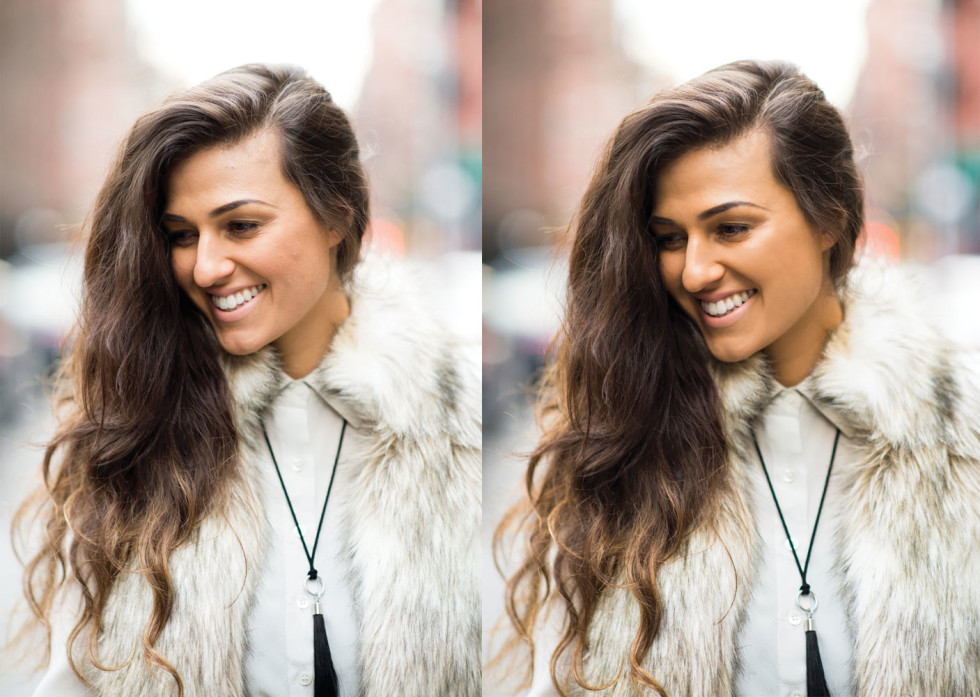Blogger opens up about pressures of social media
STORY BY JANA GREGORIO
PHOTOGRAPHS COURTESY OF DANA SUCHOW
Perfection: The condition, state, or quality of being free or as free as possible from all flaws or defects.
No one’s perfect, but it sure doesn’t look that way on social media.
Dana Suchow, a body-positive blogger and the creator of the blog Do the Hot Pants, knows first-hand the allure of creating a perfect image online. The 31-year-old from San Francisco went viral last August for coming out and saying she photoshopped many of her images.
“Nobody wants to put their worst selves online, nobody wants to constantly post photos where they have a double chin or their skin’s broken out,” she says.
When people see photos of physical perfection on Instagram, they automatically compare themselves to that person. This need to compare with others on social media can directly affect self-esteem and confidence.
According to Slate, Instagram takes all the aspects of Facebook that cause feelings of depression and low self-esteem, like documenting how great people’s lives are, and amplifies them through the image-driven platform.
“When you look at your friend’s stuff and everything looks exciting and they’re going to all these trips, you think, ‘My God, I’m a loser in comparison to all my friends because I’m not doing all these things’,” says Serge Desmarais, a psychology professor at the University of Guelph, whose research includes the impacts of social media.
Instagram is becoming increasingly popular among the 14 to 17 age group, according to eMarketer. According to the National Association of Anorexia Nervosa and Associated Disorders, 95 per cent of those who have eating disorders are between the ages of 12 and 25.
As a result, the recent boycotting of social media by Australian Instagram star Essena O’Neill, 18, has opened up a discussion on the ways the site can affect people’s self-esteem.
MORE RELATED TO THIS STORY:
- Sisterhood of the travelling pant sizes
- Writing on the wall
- Instagrams for foodies more than just your friend’s lunch
O’Neill confesses in a video on her website that she would skip meals to achieve a “perfect body” to post to Instagram.
“Social media can create a false sense of ‘perfection’ when viewing the lives of others, or put too much pressure on yourself to craft a similarly ‘photoshopped’ reality in your own life,” says Rachel Segal, a digital and social media consultant.
The drive for perfection – from achieving the best body to portraying a perfect life – is detrimental to people’s self-esteem, particularly women.
“The problem is, we’ve now created this distorted view that our best selves are our only selves. There’s no place where women are allowed to be ugly or not perfect,” says Suchow.
Suchow has come a long way in her journey for self-acceptance, but she still feels jealous when she’s on Instagram.
“I see these pictures of beautiful people living this life, traveling and doing everything I wish I could be doing, and going, ‘Wow, my life really sucks,’ or ‘My body’s not perfect’,” she says.
Desmarais says people tend to “post a constructed, most positive version of themselves” on social media, which can affect self-esteem.
“It’s a fabricated, overly positive sense of the exciting things that all these people are doing, which tends to have a negative impact because you think that your life is pretty ordinary in comparison to all these people,” says Desmarais.
This pressure to be “perfect” and “flawless” caused Suchow to Photoshop many of her pictures to the point where she created an unattainable image of herself online. She would Photoshop her acne out and make her stomach and body slimmer.
“Back then, these were life-and-death 10 pounds. These zits on my face, I would cry myself to sleep. I wanted to just come clean and be like, ‘Nothing online is real,’” she says.
Suchow had her own battles with a binge-eating disorder, body issues and self-esteem.
There was a point in her life where she was so self-conscious that she put off blogging because she was too scared to put herself out there.
“I didn’t think I was good enough, cool enough, pretty enough, any of these things, to go out and put myself online,” she says.
But after being in therapy, she started to get better and feel better about herself.
Suchow would receive compliments on her body from readers and followers but she felt like she was misleading people.
She came clean about using Photoshop on her images because she wanted to be honest and transparent. This confession lifted a huge weight off her shoulders.
“The instant gratification of putting it out there and feeling free, and feeling like, ‘Wow, now I really have nothing to hide, people know what my real body looks like,’ that felt good,” she says.

Suchow created an unattainable image of herself online, which prompted her to come out and admit to using Photoshop.
When Essena O’Neill opened up about how she would take 500 shots to achieve the perfect Instagram photo or how she sucked her stomach in for a bikini shot, her honesty resonated with many Instagram users.
“I thought it was pretty interesting to see [O’Neill’s] revised captions for particular ‘moments’ since I imagine that 99 per cent of the community on Instagram can relate to the time or effort spent creating that perfect moment. That ideal photo,” says media consultant Segal.
Suchow has become an advocate for body positivity and self-acceptance and tries to be as real as possible on her Instagram. She believes it’s important for bloggers and popular Instagram users to be vulnerable, honest and show off their flaws to create a connection that is “more than a double-tap, a ‘like’ on a photo.
“Anything where I am honest with people, and they get a glimpse inside of my life that breaks this plastic bubble, or this glass screen between us – that will get the most likes and the most comments and the most interactions,” she says.
Eventually, hopes Suchow, this obsession with constructing the perfect image on social media will become obsolete.
“Hopefully in five or 10 years, women can be truthful and get paid for it, but that’s not the current trend right now,” she says. “If social media goes in that direction, that would be great.”






